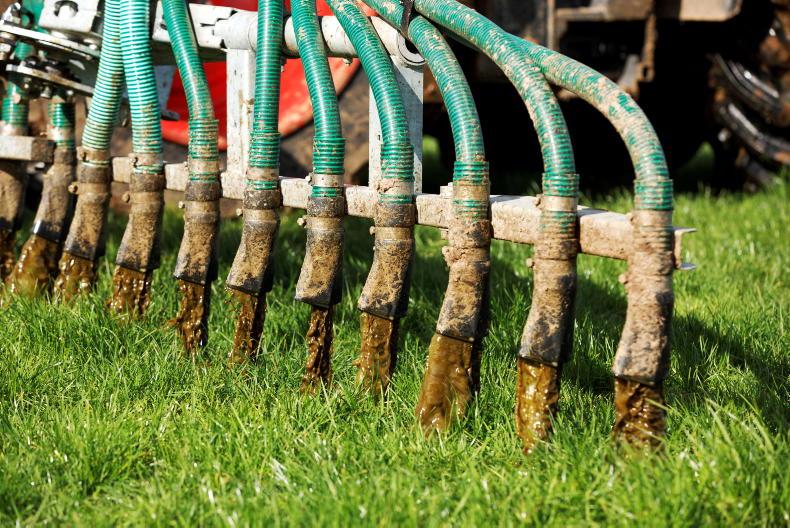Dairy farms in areas where soils have a high risk of nutrient losses to water will become “prime targets“ for future conditionality and nitrates derogation inspections, according to a senior adviser in the Department of Housing Colin Byrne.
Byrne stated that EPA maps outlining areas where soils are prone to nitrogen and phosphorous losses will be used as part of the effort by government departments responsible for water to “double down in terms of enforcement.”
In the next NAP, we will be looking at reviewing the enforcement regime
High-risk areas for the loss of nitrogen are the free-draining soils of the southeast, while the heavier soils of the west and north are categorised as more prone to phosphorous loss.
“In the next NAP, we will be looking at reviewing the enforcement regime and will be using for instance pollution impact potential maps that the EPA developed to inform targeting of inspections,” Byrne said.
The issue of lower maximum stocking rates in catchments at risk of nutrient losses may be addressed in the interim review on the nitrates derogation, said Ted Massey of the Department of Agriculture.
The comments came as a virtual stakeholder event on the Draft River Basin Management Plan for 2022-2027 discussed the role of agriculture in improving water quality and the next Nitrates Action Plan.
Defending the derogation
Byrne stated that the seeking of a derogation from the Nitrates Directive had not be in conflict with the State’s obligations to water quality, when questioned by an audience member on concerns raised in the derogation’s strategic environmental assessment.
He explained that the increased standards required of derogation farms had not been reflected in the assessment’s report and that the measures proposed under the next NAP could allow for water quality targets to be realised.
The senior adviser said that the assessment had been misinterpreted and that derogation farmers have “serious obligations” in the area of nutrient management.
“The reason the derogation was identified as a risk was in the absence of mitigation and controls. So, when you take into consideration what has been put in place to ensure that derogation is being complied with – that is what is important,” he argued.
Land drainage
A “binding” code of practice may be introduced for farmers or contractors wishing to carry out drainage works on land, with the provision of training being considered by the Department of Housing, the attendees were told.
Training will need to be put in place for farmers
“The whole regulatory-side will need to be tightened up. Training will need to be put in place for farmers or indeed anyone who is doing that type of work,” he said.
It was also stated that further limitations may be placed on the drainage of lands in ecologically sensitive areas.






 This is a subscriber-only article
This is a subscriber-only article










SHARING OPTIONS: